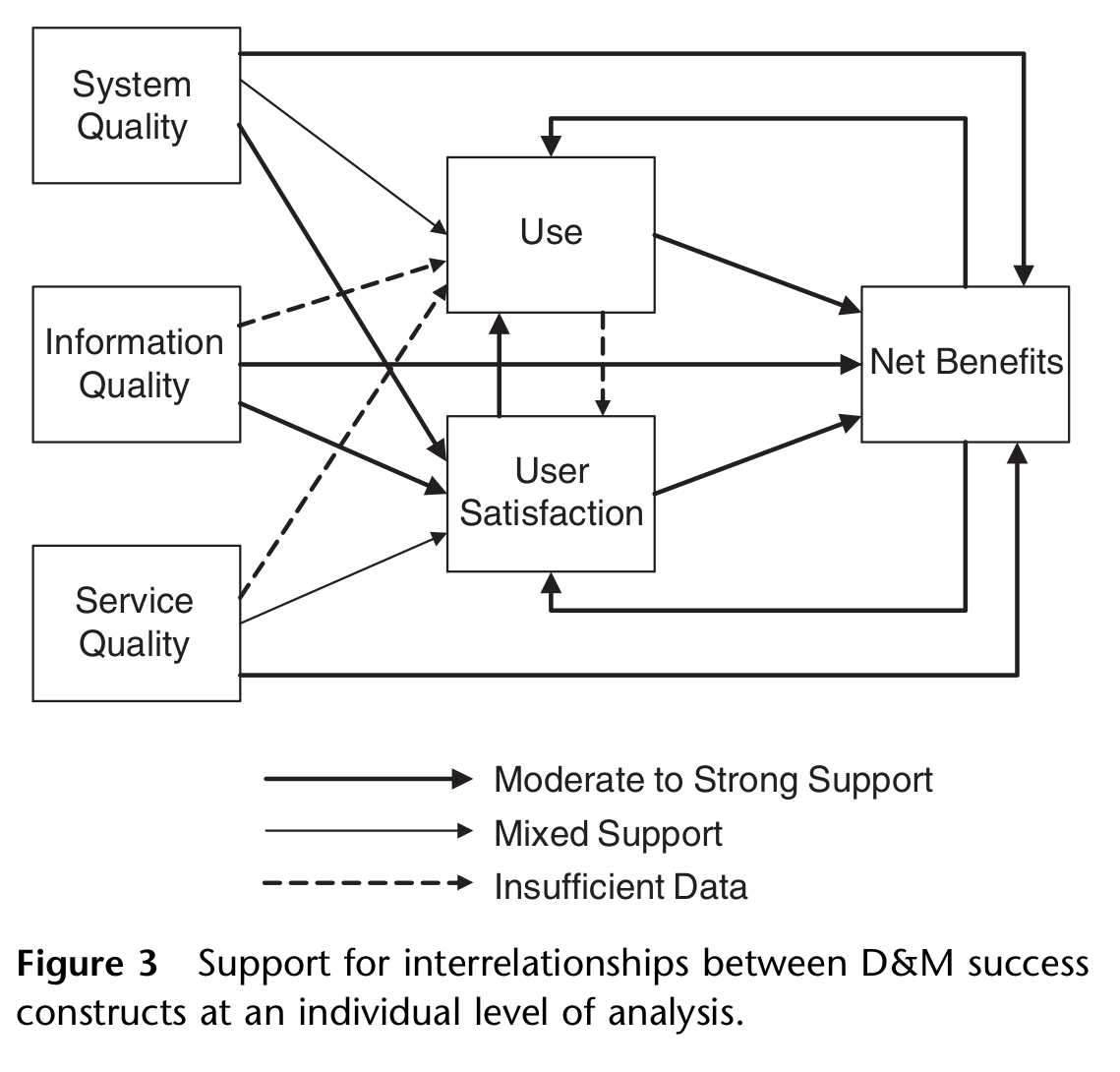TODO: show "scholarly sophistication", "to the best of our knowledge, this is new..."
Literature reviews can make a variety of original contributions, ranging from
--- # Example: Review of the IS Success model (Petter et al. 2008) 
In healthcare, the hierarchy of evidence (on the right) is an integral part for *evidence-based practice*. There are similar examples in education (Hattie)
- Time-series minimum-wage studies: a meta-analysis (Card and Krueger, 1995) - Job satisfaction and job performance: A meta-analysis (Iaffaldano and Muchinsky 1985)
TODO : add the hierarchy of evidence (compare to IS where practitioners may often use practitioner journal/opinion papers)

# We value your feedback and suggestions We encourage you to share your feedback and suggestions on our teaching materials. You can find the following links in the footer of each slide: <br> <a href="https://github.com/digital-work-lab/literature-review-seminar/issues/new" target="_blank"> ♻️ </a> Provide feedback by submitting an issue <a href="https://github.com/digital-work-lab/literature-review-seminar/edit/main/slides/00-orga.md" target="_blank"> 🛠️ </a> Suggest specific changes by directly modifying the content <br> Your feedback plays a crucial role in helping us align with our core goals of **impact in research, teaching, and practice**. By contributing your suggestions, you help us further our commitment to **rigor**, **openness** and **participation**. Together, we can continuously enhance our work by contributing to **continuous learning** and collaboration across our community. Visit this <a href="https://digital-work-lab.github.io/handbook/docs/10-lab/10_processes/10.01.goals.html" target="_blank">page</a> to learn more about our goals: 🚀 🛠️ ♻️ 🙏 🧑🎓️ .